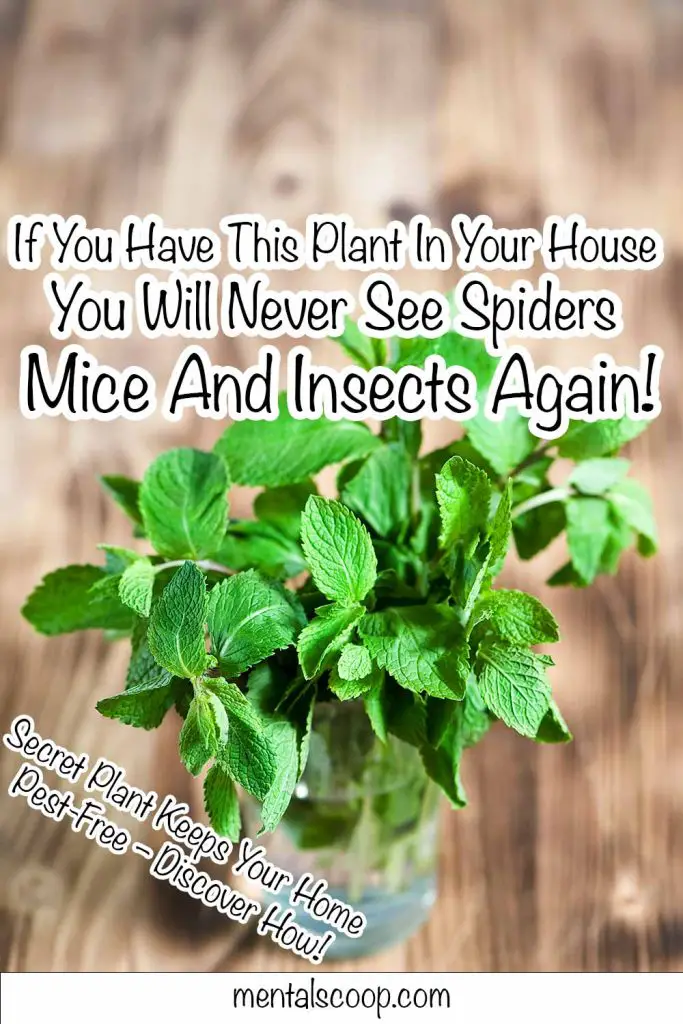If You Have This Plant In Your House You Will Never See Spiders, Mice And Insects Again!

Spiders, mice, and insects—oh my! If these unwelcome guests have taken up residence in your home, it’s time to evict them naturally and effectively. There’s a plant that not only adds beauty and a fresh scent to your living space but also serves as a powerful deterrent for common household pests.
Curious to find out what this miracle plant is and how it works? Keep reading to discover the wonders of this natural pest repellent and how you can incorporate it into your home.
The Marvelous Plant: Peppermint
The hero of our story is none other than the versatile and fragrant peppermint plant. Known for its refreshing scent and numerous health benefits, peppermint is also a potent natural repellent for spiders, mice, and insects.
Its strong aroma, which we humans find pleasant, is overwhelming and repulsive to many pests.
How Peppermint Deters Pests
Peppermint contains essential oils that are rich in menthol. This compound is highly effective in disrupting the sensory receptors of pests, making your home an uninviting place for them. When spiders, mice, and insects come into contact with peppermint oil or its scent, they tend to flee the area quickly.
Growing Peppermint Indoors
Growing peppermint indoors is relatively easy, and it can thrive in a variety of conditions. Here’s how you can cultivate this powerful plant in your home:
- Light: Peppermint prefers indirect sunlight. Place it near a window where it can receive bright, filtered light.
- Water: Keep the soil moist but not waterlogged. Water the plant when the top inch of soil feels dry.
- Container: Use a pot with drainage holes to prevent water from stagnating at the roots.
Making Peppermint Spray for Pest Control
A simple peppermint spray can be an effective tool for keeping pests at bay. Here’s a quick recipe:
- Ingredients:
- 10-15 drops of peppermint essential oil
- 1 cup of water
- A few drops of dish soap (optional, for better adherence)
- Instructions:
- Mix the ingredients in a spray bottle and shake well.
- Spray around windows, doors, baseboards, and any area where pests are likely to enter.
Peppermint in the Garden
If you have a garden, planting peppermint around its perimeter can help keep outdoor pests from entering your home. Peppermint can spread aggressively, so consider planting it in pots or designated areas to control its growth.
Additional Benefits of Peppermint
Beyond its pest-repellent properties, peppermint offers numerous other benefits:
- Aromatherapy: Its invigorating scent can boost your mood and reduce stress.
- Health: Peppermint can aid digestion, relieve headaches, and act as a natural decongestant.
- Culinary Uses: Fresh peppermint leaves can be used to flavor teas, desserts, and a variety of dishes.
Combining Peppermint with Other Natural Repellents
While peppermint is a powerhouse on its own, you can enhance its effectiveness by combining it with other natural repellents such as:
- Lavender: Effective against moths, fleas, and flies.
- Eucalyptus: Great for repelling rodents and insects.
- Lemon Balm: Another insect deterrent that also attracts pollinators like bees.
Tips for Long-Term Pest Prevention
For best results, integrate peppermint into a broader pest prevention strategy:
- Seal Entry Points: Ensure windows, doors, and cracks are properly sealed.
- Clean Regularly: Keep your home clean and free of food scraps that attract pests.
- Declutter: Reduce clutter where pests can hide and breed.
Enjoying a Pest-Free Home
By incorporating peppermint into your home, you can enjoy a natural, eco-friendly solution to pest control. Not only will your space smell fantastic, but you’ll also create an environment that’s inhospitable to spiders, mice, and insects.
Say goodbye to chemical sprays and hello to a greener, cleaner way of living.
Peppermint is more than just a pleasant plant; it’s a guardian for your home, standing vigil against unwanted intruders. Start growing peppermint today and reclaim your space from pests once and for all.

More interesting articles you may be interested in reading:

